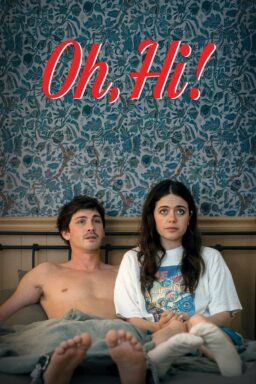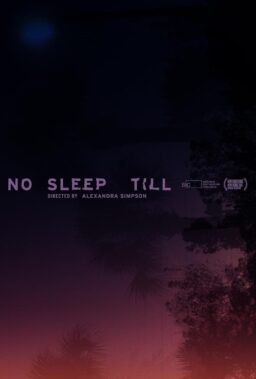For an hour the screen was filled with clips from the movies of 37 years. Garbo in “Camille.” Katharine Hepburn in “The Philadelphia Story” and again with Spencer Tracy in “Adam’s Rib.” Ingrid Bergman in “Gaslight.” Audrey Hepburn in “My Fair Lady.” And, of course, Judy Garland in “A Star Is Born.”
Then George Cukor, the man who directed all of these films and two dozen more, walked onto the stage, sat down, crossed his legs and talked frankly about his career to an audience at the Chicago International Film Festival.
“No gossip,” he said. “I didn’t come here to talk a lot of nonsense.” And when someone asked if Judy Garland was finally washed up as a performer, he snapped: “Why do you bother to come if you ask such stupid questions?”
But most of the audience was surprisingly familiar with his work. In answering its pointed questions, he provided a glimpse into the philosophy of a director long considered one of Hollywood’s most literate craftsmen.
On Garland: “People who aren’t complicated in real life come through as pretty bland on the screen. Most great performers are not very happy and well adjusted. Perhaps that’s the price they pay for being originals.”
On “A Star Is Born,” described by Douglas McKay in his book “The Musical Film” as the greatest of all musicals: “I knew when I had finished it that it was too long. I suggested to the studio that I could sweat out 20 minutes here and there without it ever being missed. But the studio said, no, they’d release the full film.
“Then, tragically, the studio decided on the basis of the first showings around the country to cut the movie to a more conventional length. It was edited brutally, stupidly and arbitrarily, and many of Garland’s finest moments were taken out. I have no doubt that’s the reason Judy didn’t win an Oscar in 1954. Neither of us have ever gone to see the butchered version; it’s a very painful business. Even worse, nobody seems to know what happened to the missing scenes after they were cut. There doesn’t seem to be a complete negative of the film in existence.”
On sex symbols: “Jean Harlow has been the target of some terribly lurid and untrue books in the last few years. She was a true comedienne, like Marilyn Monroe, able to appear fresh and charming even when she was at her most brassy and she had perfect comic timing. Harlow wasn’t at all like the sensational exposes have suggested, and I’m rather pleased that the movie about her was a bomb.”
On directing W. C. Fields as Mr. Micawber in ”David Copperfield“: “Charles Laughton was originally cast in the role. He didn’t want it and said he wouldn’t be right for it, and he was correct. After a month, he withdrew from the picture, and we cast Fields. It was a case of the role and the actor being perfectly suited; who knows where Fields ends and Micawber begins?
“The thing about Fields was he wasn’t an actor so much as a completely original personality. He’d invent little things to make Micawber seem more real. In one scene, Micawber was supposed to grow frustrated while writing letters to his creditors. Fields asked for a cup and saucer. Then, instead of dipping his pen into ink, he dipped it into his tea. Another day, in the middle of a scene, he deliberately went stamping around a desk and stepped in a wastebasket. Inanimate objects were always conspiring against him.”
On being fired as the director of “Gone With the Wind” after completing a month’s shooting: “A rather painful subject. I prepared GWTW for a year, directed all the screen tests and spent a month shooting the early part of the picture. Then I was replaced by Victor Fleming. There were stories that Clark Gable wanted the change because I was supposedly better at directing women than men. I don’t know.”
He smiled. “The day that David O. Selznick announced the change,” he recalled, “Olivia De Havilland and Vivian Leigh were costumed in mourning clothes. Olivia told me they went into David’s office, suitably garbed, and wept. In any event, disaster hits all directors occasionally, and I’m still around to tell the tale.”
On the current growth of interest in the director’s role: “I must admit I’m both pleased and astonished that so many people are now as interested in the director as in the stars or the story. This is particularly true of you young people who talk about ‘film,’ which we always called ‘the movies.’ The young European directors, the French ‘new wave’ and all that have been responsible for bringing a great deal of freshness and vitality to the screen.
“At the same time, some of them have been guilty of a lack of discipline. Not the best of the new directors, but some of those they’ve influenced. As a professional, it pains me to watch a movie that is botched and amateurish. I prefer directors who have control of both their craft and their ideas. So many directors say nothing beautifully, and so many others say great and profound things but have no idea how to read a light meter or arrange a shot.”
On Spencer Tracy and Katherine Hepburn: “There are many, many talented young performers in movies these days. But the other day I saw a preview of Tracy and Hepburn in Stanley Kramer‘s ‘Guess Who’s Coming to Dinner?,’ and all I could think was, well, now, there are two people who know how to act. I think the film itself is one of the finest I’ve ever seen: human, dignified, passionate. I believe Katherine feels the same way, and that’s why she’s allowing herself to be interviewed to promote it, something she almost never does. In a sense, she’s doing it as an act of gratitude to Kramer, who cast Tracy in the picture even though his life was no longer insurable. It was a tremendous risk, and we must be grateful to Kramer for taking it.”
On violence in movies: “The public likes it, I guess, and so you’ll find it in movies. From the director’s point of view, it’s infinitely easier to do violence than to do a good dramatic scene. I understand the violence in ‘Bonnie and Clyde‘ is a different case, but I haven’t seen it yet and can’t say.”
Cukor had been on the stage for an hour, and there was only time for another question or two. A young lady asked, “How often do you go to the movies?”
Cukor cupped his ear. “I didn’t hear you,” he said. “What did you ask? How old I am?”
“No,” the lady said, “how often do you go to the movies?”
“Not as often as I should,” Cukor said.
“All right then, how old are you?” she asked.
Cukor laughed along with the audience, declined to testify and said there was time for one more question. Two people asked it at once: Of all his movies, which was his favorite?
Cukor paused for thought. “That’s a hard question,” he said. A longer pause. “I don’t know,” he said. “Maybe, after all, it was ‘Camille.'”











